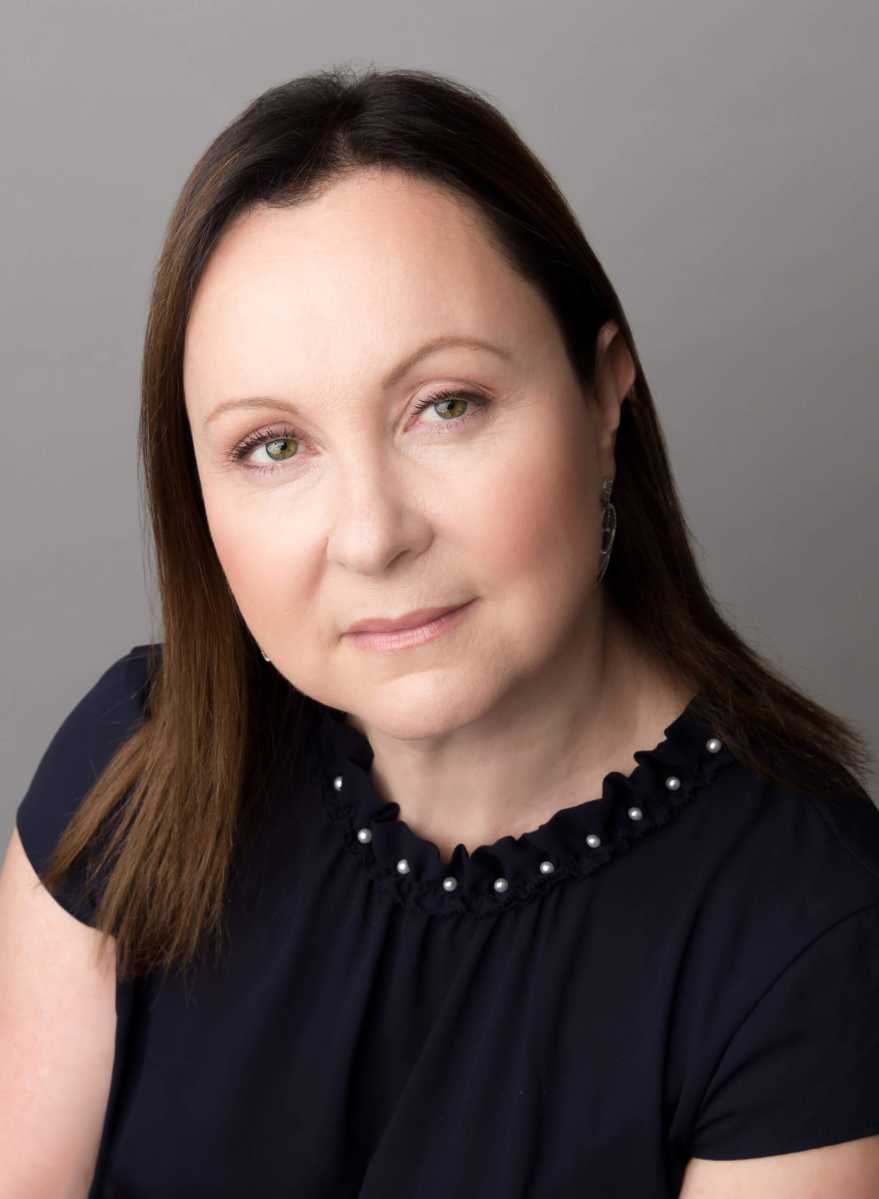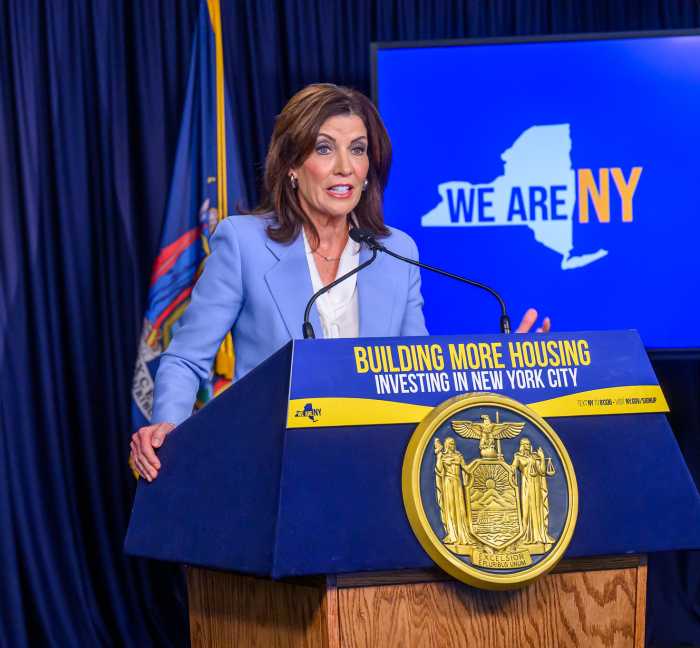Dr. Talya Schwartz was appointed president & CEO of MetroPlusHealth in 2019. During her tenure, MetroPlusHealth has achieved a 20 percent growth in membership, earned a five-star rating from New York State’s Consumer Guide, and been ranked the #1 health plan in New York State for quality. MetroPlusHealth is part of NYC Health + Hospitals public health system.
Q: What drives you to lead MetroPlusHealth’s efforts to battle breast cancer?
A: First, as President and CEO of MetroPlusHealth and as a physician, I am committed to addressing the social determinants of health among New York’s most vulnerable communities. Our aim is to actively ensure that MetroPlusHealth remains at the forefront of supporting its members through holistic, hands-on supportive care. This means preventive care for all New Yorkers. There’s no such thing as not being able to afford a mammogram when you live in New York City. We will work with members and make certain that they can and will receive critical screenings.
What drives me every day is quite simply the health and well-being of our members. There’s nothing more important to us. Our staff goes the extra mile every day. We routinely send educational materials and reminders, by mail and text messaging, to women who are due for a mammogram. Information on the importance of early detection is also posted on our member portal. We work hard to educate our members about the importance of screening and early detection. Similarly, clinical gaps-in-care reports are sent to our providers so that they can follow up with members who are due for mammograms during routine visits.
We even offer incentives to members who complete their breast cancer screening through the MetroPlus Member Rewards Program (metroplusrewards.org).
Q: How has the pandemic affected what you do for your members?
A: No question that we saw unprecedented challenges within the entire health care community, yet, according to the New York State Department of Health’s 2020 Quality Incentive results, MetroPlusHealth was ranked number one among all 15 New York State Medicaid plans in overall quality. While we have always scored high in quality, achieving the #1 spot during a global pandemic speaks volumes about the dedicated people at our company who rose to the occasion.
Some key factors that contributed to the top ranking, where MetroPlusHealth scored above 90 percent of State benchmarks, were care related to diabetes, hypertension, substance abuse disorders, and mental illness. Our streamlined process of working with NYC Health + Hospitals and its community providers also helped. Sharing data, education, and member support, were important factors, as was working to bring members in for care, especially those with the highest and most immediate needs.
We could not be prouder of our team and our provider partners or more thankful to our members for entrusting their health coverage with us.
Q: Which groups should be the most concerned about breast cancer?
A: Starting at age 50, women need a mammogram every one to two years to screen for breast cancer and some women may choose to start routine mammograms even prior to age 50. But breast cancer can occur in younger women, and women should perform self breast exams and not delay evaluation if they have any concerns regardless of age. When you see your doctor, you should discuss your risk factors and make sure you’re doing everything you can to keep your breasts healthy. If you have close relatives with breast cancer, you may be at higher risk. If you are at a higher risk, your doctor may suggest earlier screening or more regular or intensive screening
Q: What are the most common (and not so common) risk factors for breast cancer?
A: According to the CDC, there are risk factors you can change and those you cannot:
These are risks you cannot change:
- Getting older. The risk for breast cancer increases with age; most breast cancers are diagnosed after age 50.
- Genetic mutations. Inherited changes (mutations) to certain genes, such as BRCA1 and BRCA2. Women who have inherited these genetic changes are at higher risk for breast and ovarian cancer.
- Reproductive history. Early menstrual periods before age 12 and starting menopause after age 55 expose women to hormones longer, raising their risk of getting breast cancer.
- Having dense breasts. Dense breasts have more connective tissue than fatty tissue, which can sometimes make it hard to see tumors on a mammogram.
- Personal history of breast cancer or certain non-cancerous breast diseases. Women who have had breast cancer are more likely to get breast cancer a second time. Some non-cancerous breast diseases, such as atypical hyperplasia or lobular carcinoma in situ are associated with a higher risk of getting breast cancer.
- Family history of breast or ovarian cancer. A woman’s risk for breast cancer is higher if she has a mother, sister, or daughter (first-degree relative) or multiple family members who have had breast or ovarian cancer. Having a close male relative with breast cancer also raises a woman’s risk.
- Previous treatment using radiation therapy. Women who had radiation therapy to the chest or breasts (for instance, treatment for Hodgkin’s lymphoma) before age 30 have a higher risk of getting breast cancer later in life.
- Women who took the drug diethylstilbestrol (DES), which was given to some pregnant women in the United States between 1940 and 1971 to prevent miscarriage, have a higher risk. Women whose mothers took DES while pregnant with them are also at risk.
However, luckily, there are risk factors you can change. These include getting more exercise, losing weight, quitting smoking, and drinking less alcohol.
Q: How far has the medical community come in treating breast cancer?
A: Researchers are finding new and better ways to diagnose and treat breast cancer every day. Whether it’s nanotechnology or improved tests, there are amazing breakthroughs every year. Improved imaging, targeted therapy, liquid biopsies, and even artificial intelligence to help better read mammograms are areas where advancements are underway. There are new drugs and therapies in test stages all the time. Objectives here are to develop less-toxic treatments with fewer side effects that are also more effective. Patients can ask their doctors about clinical trials that may be available for several of these new drugs.
Q: What are some ways that people can actively prevent breast cancer or, God forbid, catch it early?
A: The best ways to protect yourself is to stop smoking, limit your alcohol consumption, try to be physically active, and watch your weight. Of course, the most critical action you can take is to do regular self breast exams and also to make an appointment with your local provider for a mammogram when you get older. I would urge women not to delay important screenings like this because of the ongoing COVID-19 pandemic. Our partners at NYC Health + Hospitals have adjusted their waiting areas, registration desks, and exam rooms to keep you safe when you come to see a doctor. You should also be aware of early warning signs. A new lump in the breast or underarm, thickening or swelling of part of the breast can be warning signs. Dimpling of breast skin, redness or flaky skin in the nipple area or the breast, a nipple that turns in or becomes sunken can be other signs. If you experience any of these, you should see you doctor as soon as possible.
About MetroPlusHealth
Since 1985, MetroPlus Health Plan has built a reputation for providing access to affordable, quality health care to residents across New York City. MetroPlusHealth is the plan of choice for over 600,000 New Yorkers and has a five-star rating based on the State’s 2020 Consumer’s Guide to Medicaid and Child Health Plus Managed Care Plans in New York City. It was recently ranked the #1 health plan among all 15 New York State Medicaid plans in overall quality. The health plan’s robust network of primary care doctors and specialists includes many independent community providers. Culturally sensitive, and fluent in more than 40 languages, MetroPlusHealth’s staff is as diverse as the great city it serves. For more information about MetroPlusHealth plans, benefits, and services, visit metroplus.org and join the conversation at facebook.com/metroplushealth and twitter @metroplushealth. MetroPlusHealth is part of NYC Health + Hospitals, the nation’s largest public health system.


























